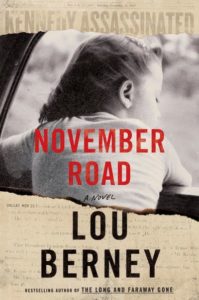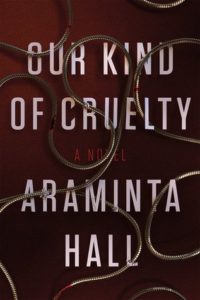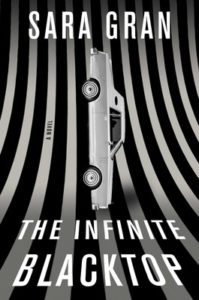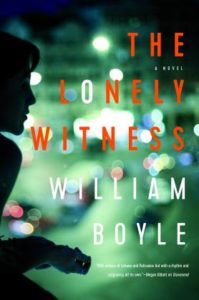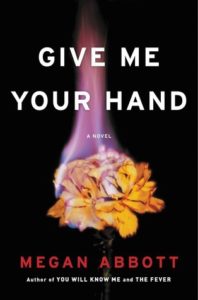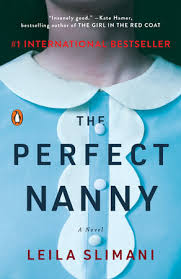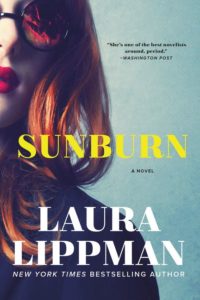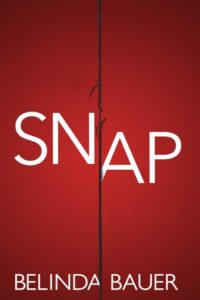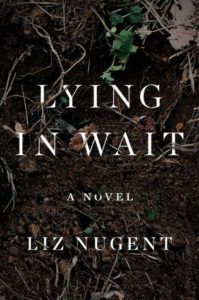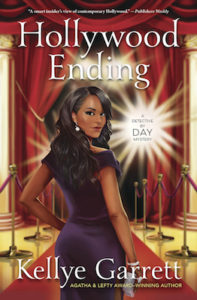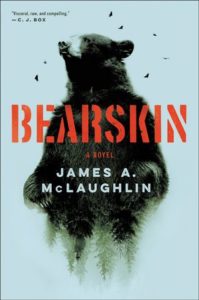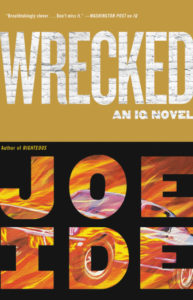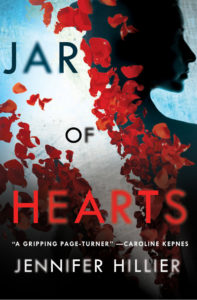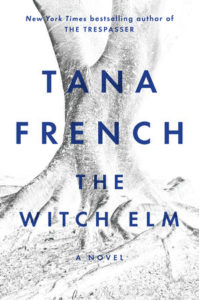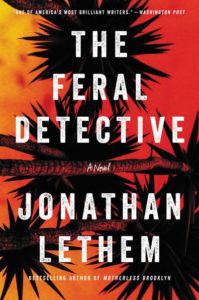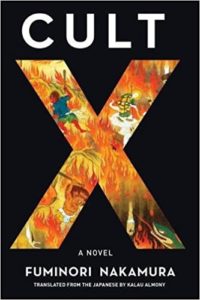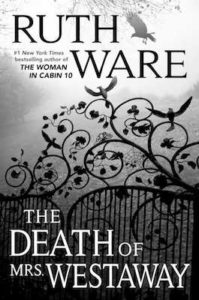Selecting the Very Best Books of any year (or, heaven forbid, of all time) can feel like a daunting exercise, especially in the world of crime fiction, where the books are plentiful, the readers are passionate, and it seems like every month there’s a new book coming out that pushes the boundaries of what this literature can do. There are many ways to measure the quality of a crime novel, a mystery, or a thriller. Did it follow the rules of the genre? Did it make us feel something? Did it shine a light on a hidden pocket of society? Was the writing spare or rich, hardboiled or poetic? Was it good…or even great? These are just a few of the many, many questions we’re asking this time of year as we go back over all the powerful and captivating books we read.
Last week, we asked our contributors to tell us about their favorite books of the year, and boy did they deliver: 62 Books That Captured Our Hearts and Minds in 2018. This week, we’re narrowing the field, taking counsel from our contributors’ choices but also forcing our editors to hash out which works of “crime” fiction they believed should capture that nebulous title of the “Best of 2018.” If you disagree with our picks (and plenty who will) please, leave a comment! Culture is not imposed from above—it’s a conversation.
Enough feet dragging. Here they are: the CrimeReads picks for Best Books of 2018.
Lou Berney, November Road (William Morrow)
November Road starts in New Orleans, at the Monteleone, a world of mobbed up hustlers and good-time gangsters, but the JFK assassination throws things into disarray, transforming this impressive, atmospheric novel into a relentlessly moving (and relentlessly engaging) fugitive story, as two figures on the run find their lives intersected and set toward a common fate. Berney’s voice is strong and human and his characters have rich inner lives that shine through on the page. There’s an incredible momentum to the story, a true thriller punctuated with moments of brilliant humanity.
Araminta Hall, Our Kind of Cruelty (MCD/FSG)
Our Kind of Cruelty has ushered in the return of an old trend in crime fiction—the unreliable male narrator. As Hall’s protagonist describes his intense relationship with a woman named “V,” readers immediately sense a gulf between his presentation of the story, and the reality of V’s motivations. We watch with horror as he destroys V’s good name and reputation in a bizarre and misguided quest to get back her love, even as we reluctantly find ourselves drawn into sympathy—and voyeuristic complicity—with his actions. This crime novel is gaslighting, distilled.
Sara Gran, The Infinite Blacktop (Atria Books)
Sara Gran is known as an author’s author, and the whole mystery community cheered when she returned to the genre after a hiatus writing for prestige television. The Infinite Blacktop heralds the return of Gran’s detective Claire DeWitt, and along with other works on this list, also heralds the return to prominence of the private detective novel, although Gran’s gumshoe has been a fan favorite for some time already. The Infinite Blacktop takes the city-hopping detective to LA and continues the series’ flashbacks to DeWitt’s Brooklyn past to reveal how Claire got her PI license. Claire DeWitt is still a mess, and the power of Gran’s writing is to immerse you in DeWitt’s pain as well as her investigations. Gran shines at sprinkling appropriate cultural references throughout her works, and fans of meta-fiction will enjoy The Infinite Blacktop just as much as her previous body of work.
Oyinkan Braithwaite, My Sister, The Serial Killer (Doubleday)
We’d been looking forward to Oyinkan Braithwaite’s debut for months even before the slim volume came across our desks. The brevity of this book belies its intensity and importance—Braithwaite brings us a pair of feminist anti-heroes for the ages, as two sisters, one practical, one beautiful, grow ever closer as the first covers up the crimes of the second. Many of us believe we would jump at the chance to cover up some indiscretion of a loved one in order to truly prove our devotion (or at least, one-up them by cleaning up their mess), but how many of us would not only cover up a murder, but do it well? This book is amazing, and every woman should read it in public. While cackling.
Alafair Burke, The Wife (Harper)
A woman deals with the fallout after her husband, a rising literary/intellectual star, is accused of sexual crimes, in this timely (prescient, even) novel that deals with weighty cultural issues without sacrificing any momentum in a genuinely compelling plot. The Wife takes fascinating turns, each one driving readers deeper into the ethical quandaries haunting Burke’s characters. This is a finely observed, richly realized world where the stakes couldn’t be higher. Burke is earning a reputation as one of the most nuanced, compelling authors working today.
William Boyle, The Lonely Witness (Pegasus)
Boyle’s The Lonely Witness is a perfect noir for New York City and for the contemporary urban experience. A young woman living a modest life of quiet service in outer Brooklyn grows suspicious of a man, follows him, and witnesses a murder. Boyle’s novels are meditative and atmospheric, but they also drive forward with a compulsive and dreadful energy, in part thanks to the deeply lived in surroundings, as well as characters who have an emotional authenticity few can match in today’s crime novels. Boyle is a big talent doing complex work with the modern noir.
Megan Abbott, Give Me Your Hand (Little Brown)
Megan Abbott is very good at transporting crime fiction into the territory of female rage, never more so than in her latest, Give Me Your Hand, set in a science research lab marked by intense competition and extreme status anxiety as lab assistants alternate between decrying tokenism and fighting to be “the woman” on the lab team. Academia is brutal, and Abbott gets it. Give Me Your Hand shares a focus on extreme competition with Abbott’s novel of amorality and the sublime, You Will Know Me, yet with older characters come higher stakes, both in the consequences of their actions and the implications of their approach to femininity. While Abbott’s reputation in the mystery world has been steadily growing over time as she mastered first pulp, than a noir approach to teenage cruelty. We’re excited to see Give Me Your Hand get the most attention yet!
Leila Slimani, The Perfect Nanny (Penguin Press)
While Leila Slimani’s American debut begins with the brutal murder of two small children by their nanny, the book as a whole is a much moodier affair, as we follow a seemingly happy family as they hire the perfect nanny for their small children and bourgeois lifestyle on a path towards their inevitable destruction. Intersectional on every page, The Perfect Nanny took American readers by storm and proved to be the perfect, terrifying parable for the modern age.
Laura Lippman, Sunburn (William Morrow)
A man and a woman, seemingly drifters, cross paths one summer day in a quiet village in Delaware. Centripetal force takes over and their relationship grows more intense, with increasingly sinister undertones. Lippman’s Sunburn, an homage to James M. Cain’s The Postman Always Rings Twice, is a subversive take on classic noir and an emotionally taut reinvention of the form. Lippman continues to innovate and thrill with every book.
Belinda Bauer, Snap (Atlantic Monthly)
Bauer’s Snap is a deeply unsettling, masterfully constructed suspense novel, weaving together a cold case investigation, modern-day crimes, and the suggestion of ever-darker secrets just beneath the surface. Filial loyalty is at the center of this novel, as a son deals with the trauma of his mother’s murder and goes on the offensive in search of her killer. Bauer’s chiseled prose and fine-tuned knack for suspense keep the pages turning at a brutal, rewarding pace.
Liz Nugent, Lying In Wait (Gallery/Scout)
Lying In Wait is a novel of cruelty—not the cruelty of intentions, but the cruel compromises we make between what we seek and what we know we are, what we want and what we are told to want. Liz Nugent stunned us with her novel of the violence lurking in middle-class life, Unraveling Oliver, and Lying In Wait takes us into 1980s Ireland to pillory the hypocrisies of an era, while showing how simple, individual lives are destroyed under the weight of social expectations. This book is a brutal as it is beautiful, with the year’s most haunting ending.
Kellye Garrett, Hollywood Ending (Midnight Ink)
Kellye Garrett wins “most fun book of the year” with her second in a series featuring struggling-actress-turned-amateur-detective Dayna Anderson. This time, Anderson encounters deadly mischief during awards season. Garrett’s Detective By Day series reminds us why we first fell in love with private eye fiction, as we watch Dayna figure out the basic tenets of the PI world, her occasional professional and romantic foibles never denting her boundless confidence. As in the first book in the series, Garrett affectionately pillories Hollywood excess (the gift-bags alone invoke a strange combination of envy, awe, and amusement).
James McLaughlin, Bearskin (Ecco)
McLaughlin’s debut novel is among the most vivid pieces of nature writing you’ll come across this year, with a genuinely heart-pounding thriller nestled inside. Set within a nature preserve in rural Virginia, among an old-growth mountain forest, Bearskin is a story about trauma, survival, poaching, environmentalism, ecology, black-market economies, and culture clashes. This is one of the year’s most ambitious thrillers, with impeccable attention to detail and atmospherics, and a chiseled prose that gives way to flashes of brilliance.
Lucy Atkins, The Night Visitor (Quercus)
Lucy Atkins is skilled at crafting both intricate plots and unbearable tension, and she is also very, very good at pillorying the academic scene. A bestselling author and TV historian becomes ever-more entangled with the research assistant who controls access to the diary of a female doctor, the most important research material for her upcoming biography of the diarist. As hidden truths and complex relationships are revealed, this slow-burn psychological thriller engages with the nature of fact and fiction, and questions the need for likability in female characters, even those long-dead. The ending is wince-worthy—and that’s a good thing.
Joe Ide, Wrecked (Mulholland)
Joe Ide first entered onto the mystery scene two years ago with IQ, the first in a series featuring genius investigator Isaiah Quintabe (known as IQ to his few friends and many clients), solving crimes in South Central LA. The books are delighting readers with their mixture of unique setting, complex action sequences, and frequent nods to Sherlockian inspirations, all updated and re-imagined for a modern era. In Wrecked, IQ and his former partner-in-crime Dodson are now officially partners and trying to make their business more professional while also looking into a missing persons case. The new job demands personal growth and carries real emotional consequences, while still bringing the madcap fun that’s an important part of Ide’s signature style.
Jennifer Hillier, Jar of Hearts (Minotaur)
Hillier’s Jar of Hearts is a novel about friendship, loyalty, and secrets that happens to also be a wildly innovative take on serial killer fiction. A trio of friends is torn apart when one is killed, a trauma that resurfaces years later when a body is found, calling into question everything that passed between the girls fourteen years prior. Hillier is a major talent making her name in the mystery community, and Jar of Hearts is one of the year’s most notable standout successes. Jar of Hearts is one of the most emotionally authentic, and deeply felt, crime novels to come around in some time.
Tana French, The Witch Elm (Viking)
A significant departure from her Dublin Murder Squad series, Tana French delivers an expert take on the psychological thriller in the many-layered tale of memory and murder. When a young man is badly beaten and sustains brain damage, including significant memory loss, he finds a path towards healing when he moves in with his sick uncle as caregiver. When a body is discovered in the titular witch elm on his uncle’s estate, French’s protagonist must go on a journey into the past—and into his own mind—to discover the culprit. As psychologically astute as it is compelling, and with a cracking good ending!
Jonathan Lethem, The Feral Detective (Ecco)
Lethem’s first detective novel since Motherless Brooklyn is a bizarre, poignant, mind-bending journey through the desert landscapes of California’s vast and arid inland regions, traveling through the reclusive and eccentric communities that have sprung up there. In short, this is not Marlowe’s Los Angeles or Lew Archer’s Santa Teresa. This is the Southern Californian detective’s fever dream, and Lethem surprises on nearly every page, with a provocative, insightful novel that proves he still has a great deal to say about crime and mystery literature.
Fuminori Nakamura, Cult X (Soho Press)
Nakamura is known for his sparse, brutal noir, exploring themes of alienation and the sublime in modern Japanese life, and the length of his new work Cult X may come as a surprise. The sprawling novel, told from multiple perspectives and with long forays into the science of the universe, is an epic endeavor that deserves to stand next to the works of Ellroy and Bolaño in the canon of lengthy crime fiction. Cult X begins when a young man goes undercover in a cult to search for his lost girlfriend. He soon discovers an underground war between two cults, one marked by libertine excess, and the other by puritanical restraint. An ambitious novel on a topic of great interest from a master of the genre, Cult X is not to be missed.
Ruth Ware, The Death of Mrs. Westaway (Gallery/Scout)
Ruth Ware, with her modern melding of traditional mystery and domestic suspense, never fails to impress, and her latest, The Death of Mrs. Westaway, continues her winning streak in the mystery department. In a case of mistaken identity, a skilled yet down-on-her-luck tarot reader in a depressed seaside town receives a letter informing her she’s received an unexpected windfall from a distant relative. When she travels to the relative’s country estate for the reading of the will, she quickly becomes embroiled in family disputes and discovers new truths about her own past.


